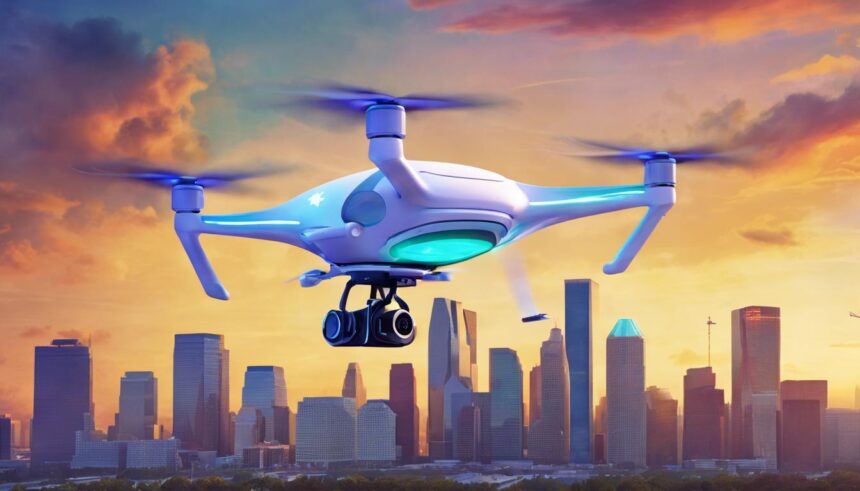Memorial Hermann Health System partners with Zipline to introduce a drone-based delivery system aimed at vastly improving the distribution of prescriptions and medical supplies in Greater Houston, marking a significant step forward in healthcare logistics.
In a pioneering move set to redefine how healthcare services are delivered, Memorial Hermann Health System is gearing up to introduce an innovative drone delivery service across Greater Houston. From 2026, the system will utilize Zipline’s state-of-the-art autonomous drones to transport prescriptions and medical supplies directly to the homes of patients. This initiative not only places Memorial Hermann at the forefront of healthcare logistics innovation in the city but is also indicative of the growing trend towards integrating advanced technology to enhance patient care services.
Zipline, a leader in drone delivery systems globally, has recently announced its one millionth commercial delivery, underscoring the reliability and efficiency of its services. Its latest offering, the P2 service platform, promises delivery speeds up to seven times faster than traditional methods, averaging deliveries in approximately one minute per mile. Using electric drones known as “Zips,” the service will cater to both urban and suburban areas, ensuring a quiet and non-disruptive operation.
The technology employed is particularly impressive. Once a prescription or supply order is placed, a Zip drone will transport it to the designated location, hovering safely at a height before releasing an autonomous delivery droid on a tether. The droid is capable of precise navigation, ensuring deliveries can be made to specific spots like a patio table or the front steps of a home, offering unparalleled convenience to patients.
Alec King, Executive Vice President and CFO of Memorial Hermann, emphasized the motivation behind this venture: enhancing patient experiences and providing value to the community, without additional costs to the patients. The move reflects a wider healthcare industry trend towards leveraging technology to streamline operations and improve patient outcomes.
With the capabilities to operate in various weather conditions including rain, wind, and extreme cold, and to overcome typical urban transport challenges like traffic congestion, Zipline’s drones represent a significant upgrade over traditional delivery methods. Notably, the service operates with zero emissions, aligning with growing environmental consciousness and the push towards sustainability in healthcare practices.
Looking ahead, Memorial Hermann could potentially expand its use of drone technology to facilitate the transport of medicine, supplies, and lab samples between its various facilities, further integrating and optimizing its healthcare delivery network.
As Memorial Hermann and Zipline work through the regulatory approvals necessary to bring this service to fruition, this collaboration presents a fascinating glimpse into the future of healthcare logistics. It promises not just to better patient care through innovative delivery solutions, but also to set a new standard for medical logistics in urban environments. This initiative might be the catalyst needed for more healthcare providers to adopt similar technologies, potentially transforming logistical operations across the sector and leading to broader improvements in healthcare access and efficiency.





